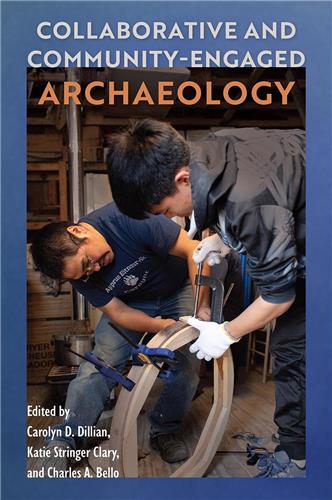This book highlights approaches to archaeological research that emphasize active involvement of local communities and descendant groups in the design, investigation, interpretation, and management of sites and heritage. It provides real-world examples that demonstrate the broad applicability and benefits of collaborative work.
Buy Books: Browse by Season: Fall 2025
Fall 2025 - Spring 2025 - Fall 2024 - Spring 2024 - Fall 2023 - Spring 2023Please note that while you may order forthcoming books at any time, they will not be available for shipment until shortly before publication date
Focusing on small-scale societies in saltwater environments, this volume explores the development of seafaring technology and examines how watercraft have served as groundbreaking innovations throughout human history.
A guide for today’s classrooms, this collection from leading James Joyce scholars explores innovative pedagogical approaches to the works of the often-challenging writer, helping both new and experienced teachers of Joyce make his texts understandable, relatable, and even fun.
This volume explores Latin American cultural works from the twentieth and twenty-first centuries that reflect environmental changes, showcasing how artists, writers, and activists depict the scale and impact of ecological crises.
Exploring the relationships between plants, animals, and humans across various countries and historical periods and through a wide range of cultural production, this collection challenges anthropocentric perspectives and offers a deeper understanding of Latin America’s natural environment.
This book explores the historical archaeology of the past four hundred years in Michigan, illustrating how the state’s history reflects the broader American experience through themes of entrepreneurship, immigration, capitalism, and civil rights.
This book offers a long history of the term “un-American,” from Jefferson’s vision of the early Republic to the present, tracing what the term has meant to whom through close looks at the most prominent contests for control of its definition and deployment.
This is the first critical biography of the life and work of Annette and Rudi Rada, two photographers who captured the rise of Tropical Modern architecture in South Florida and the Caribbean during the mid-twentieth century.
Presenting case studies and regional overviews, this book offers insights and strategies for transforming the ethics of archaeological practices in the Caribbean to bring about a positive future for the discipline.
This volume offers new insights into revolutionary Cuba’s global influence by shifting the focus from high-level political leaders to overlooked dimensions such as everyday lives, family dynamics, and notions of gender and sexuality.











